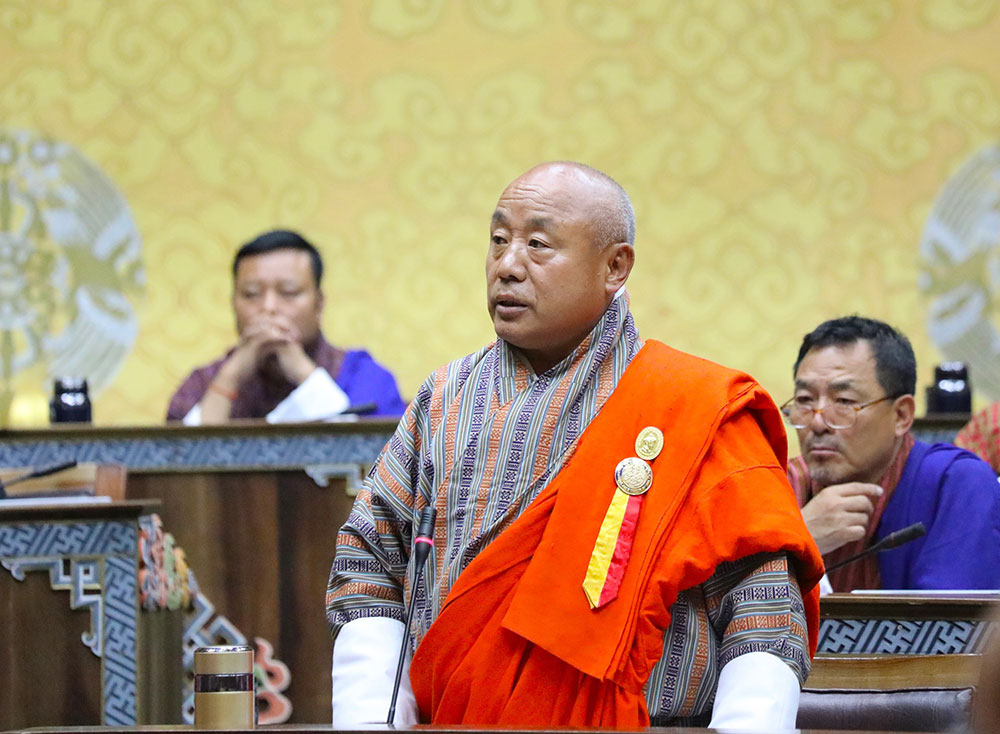Choki Wangmo
In response to the pressing concerns surrounding the dwindling mandarin production in Bhutan, Minister for Agriculture and Livestock Yeshey Penjor announced that the ministry has successfully developed resilient mandarin species to combat the challenges posed by disease outbreaks.
MP for Bardo-Trong, Gem Tshering, shed light on the alarming drop in mandarin production over the past decade, which has severely impacted the livelihoods of many farmers who heavily rely on mandarin cultivation for their income.
Reports of greening or HLB disease outbreaks have plagued the industry, crippling income opportunities for farmers across 16 mandarin-growing dzongkhags in the country.
During a question-and-answer session at the National Assembly yesterday, Gem Tshering inquired about the government’s plans to revive mandarin production and address this pressing issue.
In response, Minister revealed that two new mandarin species, Wengkhar-1 and Wengkhar-2, have been developed at the Wengkhar Agriculture Research and Development Centre in Mongar. These resilient species are capable of thriving at altitudes of up to 1,700 meters above sea level.
The minister emphasised that the production of this cash crop, typically grown between 700 to 1,700 meters above sea level, has witnessed a significant decline to a mere 10 metric tonnes(MT) since 2014. Factors such as climate change and inadequate care have contributed to this decline. “The lack of proper care has led to the spread of diseases among new saplings,” said the minister.
To mitigate the situation, the government has relocated the nursery from Sarpang to Trashiyangtse due to rising temperatures in Sarpang. Farmers were instructed to remove infected trees and were provided with new saplings as replacements.
Studies have shown that areas situated within the altitude range of 900 to 1,400 meters above sea level yield high-quality mandarins.
The minister asserted that records indicate a positive trend in cash crop production since 2021, with production reaching 18.5 MT last year, a noticeable increase from the previous year’s 16 MT.
Furthermore, the government has embarked on the Million Fruit Tree initiative, focusing on the cultivation of high-end fruit trees. The Minister highlighted that the second phase of the initiative specifically targets low-altitude fruits.
MP for Jomotshangkha-Martshala, Norbu Wangzom, raised concerns about the scarcity of seeds and seedlings within the country, leading to significant expenditures on importing these resources and resulting in the outflow of convertible currency.
To address this issue, the government currently provides farmers with seeds and seedlings at subsidised rates.
The Minister explained that due to the emphasis on high-end crops, the country relies on imports for hybrid crops it cannot produce domestically. Approximately 60 percent of fruit saplings utilised in the Million Fruit Tree plantation were imported.
Out of the 19 MT of seeds and seedlings utilised in the country, only 9 MT is produced domestically, reflecting the current dependency on imports.
As Bhutan strives to revitalise its mandarin industry and bolster agricultural self-sufficiency, the development of resilient mandarin species and targeted initiatives are key steps towards ensuring a prosperous future for its farmers and the nation as a whole.


